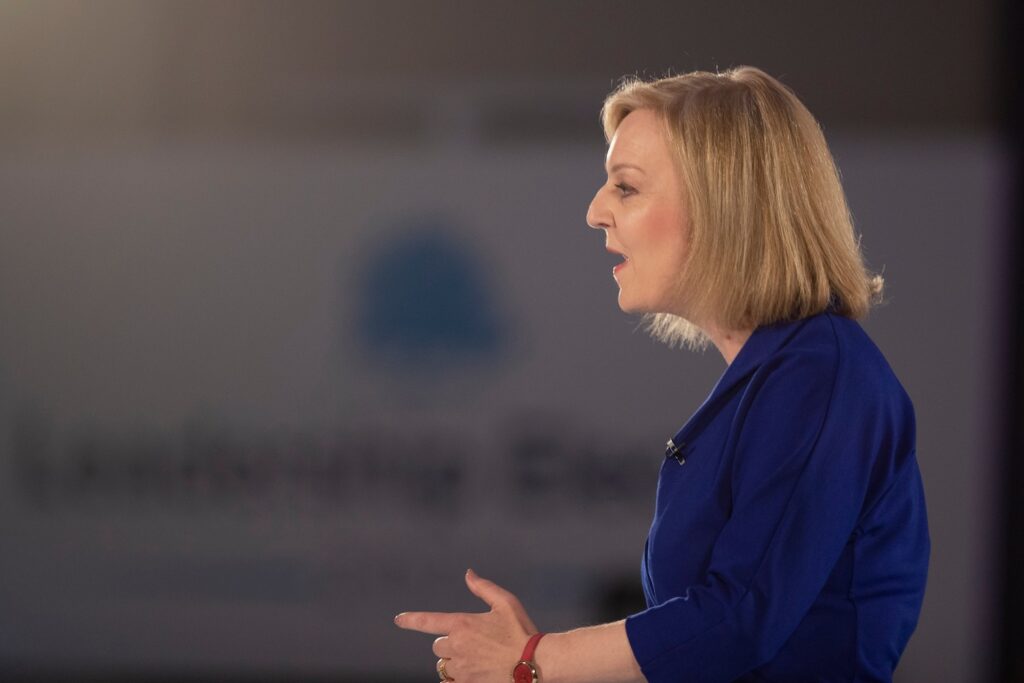Liz Truss’ energy support package welcomed “to a degree”
9th September 2022
Farming industry representatives welcomed Liz Truss’ energy support package outlined this Thursday (8th September), but warned more needs to be done to protect livelihoods and food security.

Prime minister Liz Truss has announced she will be capping energy bills at £2,500 per year for the next two years in an effort to tackle the deteriorating energy crisis across the UK.
Ms Truss claims this will save a typical household £1,000 a year, which comes in addition to the £400 non-repayable discount on energy bills available to households with a domestic electricity connection in England, Scotland and Wales. The government is yet to announce an equivalent of this support for households in Northern Ireland.
The prime minister said the new Energy Price Guarantee will be delivered by securing the wholesale price for energy, while putting long-term measures in place to keep supplies more affordable in the future. These include negotiating new long-term energy contracts with domestic and international suppliers and expanding domestic energy sources with a particular focus on renewable energy.
Ms Truss has also announced support for businesses, charities and public sector organisations who will receive an equivalent price guarantee for six months. After the first three months, a review will be conducted to identify vulnerable sectors that will be eligible for support with energy costs beyond the initial period.
Responding to the prime minister’s energy package announcement, NFU president Minette Batters said: “It’s a relief to hear that the Government will be providing support for businesses with a cap on energy bills for the next six months.”
At the same time, she urged the Government to provide clarity on what these measures will look like.
Ms Batters also stressed the importance of energy costs being closely linked to the cost of food production. With British farmers facing eye-watering energy bills this winter, a decrease in the volume of food produced is expected across all farming sectors, she explained.
“As we head into the autumn and winter, protecting our food security must be a priority for the prime minister. Our farmers are doing all they can to continue producing high quality, affordable food, but we need confidence that this new Government is backing British food and farming and, crucially, reflecting that in its policymaking.
“This is essential now and beyond the initial six-month scheme and will require the farming industry and the Government to work together to develop targeted support across all farming sectors.
Ms Batters also welcomed the Government’s plans to accelerate the production of renewable energy in the UK and highlighted that British farmers can help deliver on this front with adequate support.
“We urge the new energy supply taskforce to develop a plan which supports a functioning domestic energy market – one which provides stability for British farm businesses, rewards those producing renewable energy, and enables the continued production of sustainable and affordable British food for the country,” she added.
NSA policy manager Emma Bradbury shares the widespread concern for the continuity of British food production.
“The NSA has welcomed the announcement from the PM on measures to address soaring energy costs. Although the six-month price cap will be a welcome relief for many, NSA is extremely keen to see the food and farming industry prioritised to ensure food production has priority of supply over the coming months.”
Meanwhile, NFU Scotland president Martin Kennedy has also welcomed the news that farming, crofting and food businesses will receive Government support with soaring energy costs. He said that many farmers are already restructuring their business or reducing production due to an unprecedented increase in input costs.
Regarding the energy price guarantee for businesses, Mr Kennedy stressed that farm and agri-food businesses must be considered as ‘vulnerable’ at the three-month review and receive extended support. His argument was that such businesses form an essential part of the Critical National Infrastructure (CNI), which has previously been recognised in the UK’s Covid response.
“The announcement made by the Government must be effective and give these farming and food businesses confidence to go on, or food security will be undermined and prices at the shop shelf will continue to climb,” he explained.
In his closing remarks, Mr Kennedy advocated Government action to aid farming businesses looking to invest in renewable energy production. He said Government and energy companies must do more to help businesses generate their own electricity from renewable sources and bring their bills down.
In his response to Liz Truss’ announcement, CLA president Mark Tufnell said: “The energy package announced by the Government today is welcomed to a degree, however a six-month cap for businesses is too short a time horizon. A cap on the unit rate makes sense, but the Government must act to stop the increase in standing charges.”
Mr Tufnell emphasised that many businesses are closing their doors due to the impending cost of living crisis. With many association members currently relying on heating oil, they will not be eligible for the £400 discount on bills this winter. However, the president did express relief over the Government’s plans to support these consumers with a dedicated fund.
“Members’ data shows that there is no real competition in the energy market, and this needs to be reviewed urgently. In the meantime, immediate cutting of regulations on renewables such as small-scale solar and business rate holidays are just a few examples of what could be done to ease pressures being faced across the countryside,” Mr Tufnell concluded.
